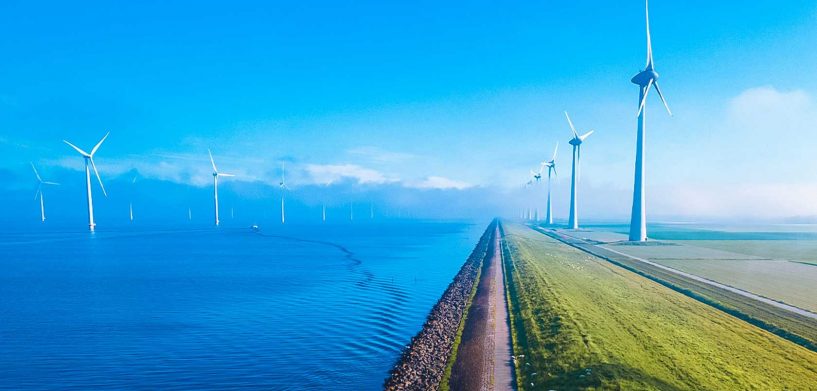Zero Emissions Day offers a chance at mindfulness. It’s a day to examine our routines and habits so we can understand our impact, no matter how large or small. Taking a day to produce zero emissions reminds us that the power to shape a sustainable and profitable future lies within all of us.
Hexagon believes both individuals and companies should practice Zero Emissions Day. Just as each person should examine their own lives and make necessary changes to further the planet’s sustainability, corporations can do the same.
One way to start is by joining the Business Ambition for 1.5°C, a campaign by the United Nations Global Compact urging companies to do their part to limit rising global temperatures. Hexagon has followed the campaign’s direction and committed to public targets, which will be validated by the Science-Based Targets initiative (SBTi). The goal is to achieve net-zero trajectory in Scope 1 and Scope 2 emissions by 2030 and net-zero emissions in our full supply chain by 2050.
What sustainability and net-zero mean
Sustainability is a popular term today, but what does it mean and why is achieving net-zero emissions such an important goal?
Eva Carranza, Hexagon’s Head of Sustainability, has a concise answer. “Sustainability is about ensuring the long-term health of people, profits and the planet,” she says. “Net-zero emissions means companies and other institutions reduce their emissions as much as possible and capture the remaining emissions, keeping global temperature rises below 1.5°C.”
Leading bold corporate responsibility and sustainable profits
A passionate advocate for sustainability in Environmental, Social and Governance (ESG), Carranza carries a unique perspective on corporate responsibility. She started her career as a chemical engineer with aspirations to work on an oil platform, but soon became very interested in the environment, sharing, “I realised I wanted to also understand the science behind our natural ecosystem and the role human civilisation can play.” She shifted her focus to environmental engineering, quickly understanding that sustainability is about communities and social markets just as much as it’s about natural resources.
Carranza said the first step for most businesses is understanding their total footprint. “Sustainability pushes are focused on highly emitting sectors, such as steel, cement and power generation. However, every other industry also needs to reduce, but many businesses haven’t properly mapped their carbon emissions impact.”
She said companies can improve their impact by making conscious decisions about natural resources and championing human rights within their global value chains. “To ensure a long-term opportunity for profit, you need to start doing things now, even if they’re just small steps. That’s what Zero Emissions Day is all about.”
Can sustainability and business coexist?
Carranza maintains that sustainability doesn’t have to conflict with business profits. Her role is to help Hexagon grow while ensuring we improve our impact on people and the planet. “We have a clear commitment to our stakeholders, including driving profits. For many people, that’s profit in the short-term. But a long-term, sustainable approach to profit is just as important. It’s growth through sustainability, which is increasingly expected by institutions and customers.”
At Hexagon, we firmly believe sustainability is the number one business opportunity of the 21st century. To that end, every commitment and initiative made towards more sustainable practices equals a step towards more sustainable profits in the long run.
What sustainability looks like within industries
To become sustainable, every industry will need to become more efficient in everything they do. That includes proper energy and resource optimisation, which ultimately ensures better cost management. Carranza believes autonomous technologies and systems will be critical to reaching full efficiency. “Autonomy can manage and optimise workflows in energy management, supply chain optimisation, environmental monitoring, increasing yield, minimising waste and so much more.”
That means businesses can use autonomy to inspect and transfer data, visualise and analyse production, then automatically define problems and take corrective actions. The process looks different per industry since every industry has its own challenges. However, autonomous solutions can easily create better efficiencies in almost every business.
Manufacturers can reduce scrap rates and weight of components while avoiding re-work and considering the full lifecycle of products. Agriculture workers can reduce the consumption of chemicals and improve farm yield while cutting CO2 emissions with better positioning solutions. City planners can use 3D data to simulate scenarios and make cities smarter, safer and more sustainable before they’re even built. That includes better plans for the community to develop green spaces, biodiversity and air quality.
Corporate and personal responsibility
As individuals, we all play a part in accelerating the planet’s sustainability. “We can’t rely on governments and large organisations to take action alone – we need to take it ourselves,” Carranza said. “Everyone has a role to play. A key message of Zero Emissions Day is that you can take any action as long as you have the right direction. Any initiative is better than no initiative.”
While it’s easy to feel overwhelmed by the magnitude of the challenge, small changes in our daily lives can lead to significant collective impacts. Carranza put it this way: “It’s easier for 90% of people to eat 10% less meat than for 10% of people to become vegan.” Sustainability is not an all-or-nothing proposition; it’s about making conscious choices that align with our collective responsibility for the planet’s future.
“Solving the crisis will take time,” she said, “so I look at our sustainability progress as a journey forward. And just like any journey, direction is more important than speed. Start now and set small targets. It’s better to have those than wait for 2030 and realise we’ve made no progress.”
Today is the day to start consuming less and wasting less.
Celebrating Zero Emissions Day
This year, Hexagon has announced a global work-from-home initiative on 21 September for its workforce, reducing emissions that result from commuting. This small initiative is part of our larger commitment to reducing our carbon footprint and a testament to our belief that every action, no matter how small, contributes to the greater good.
We invite you to embrace the hope and optimism that comes with taking action. Together, we can accelerate sustainability and create a world where business, industry and humanity sustainably thrive. As Hexagon’s CEO and President Paolo Guglielmini said, “This is not just a corporate responsibility; it’s a moral imperative. It’s about ensuring a world that is liveable and thriving for our children and their children.”
To learn more about Hexagon’s sustainability and net-zero commitments, visit our 2022 Sustainability Report and our Net-Zero Emissions page.

















